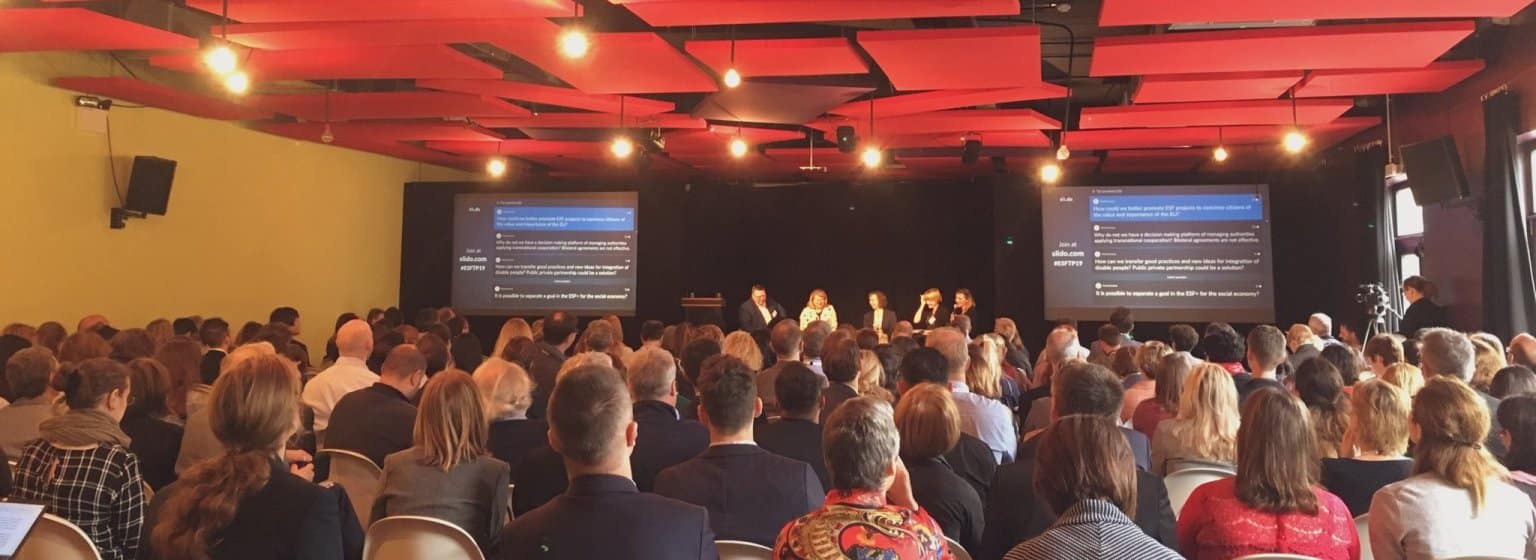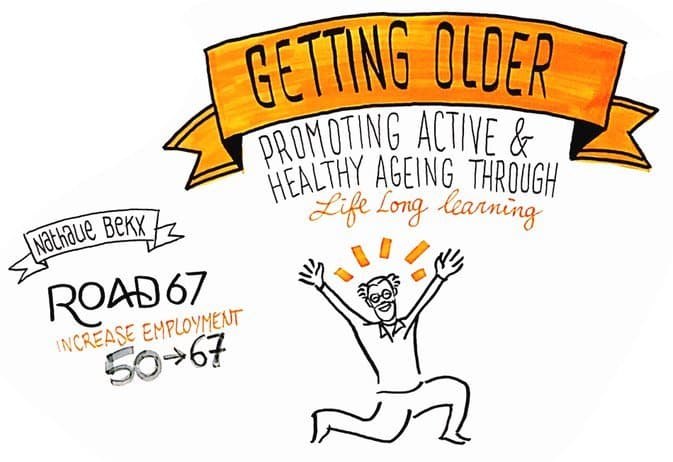
On 21 May, AGE moderated a workshop of the European Social Fund’s Transnational Platform that focused on learning for active and healthy ageing. As part of the workshop, successful practices from ESF (the European Social Fund) and Interreg have been presented and a reflection on how to better reach out to older learners took place with the European Commission and LLLPlatform, a civil society organisation.
Does life-long learning really mean life-long?
Philippe Seidel of AGE introduced the session by mentioning that life-long learning is more and more visible as a policy topic in the European Union, with the Upskilling Pathways recommendation and recommendations in the European Semester. The European Education and Training 2020 Framework has set the target of increasing adult education to 15% of 15-64 year-olds by 2020 – however, this figure is only at 10% by now. Regarding older people, they are the most unlikely group of participants in life-long learning, and beyond 75 years no statistics are collected. Mr Seidel raised the question whether there is too much focus on the labour market and how this could be changed.
Successful examples of learning for active ageing from ESF and Interreg

Mercedes Acitores of the Valencia City presented InterAct, a programme providing services to Interreg projects. She noted that while Interreg and the European Social Fund often have common objectives, they are not often seen as interchangeable or complementary. Often, project promoters chose a fund only on the basis that they are familiar with it, although their project could better fit in another fund. She noted that quite a large budget of Interreg was dedicated to ageing, including in the domains of education and vocational training, employment or health and social inclusion. She showcased different projects that aimed to tackle social isolation, adapting SMEs to the silver economy or promoting volunteering.
More national action needed to fulfil the European ambitions in validation and learning
Ms Brikena Xhomaqi of Life-Long Learning Platform and Ms Maeva Roulette of the European Commission commented on the presented experiences. From the discussion, it emerged that learning is crucially important for older people to age actively and healthily, but also to stay included in society. However, this is not only possible through providing them with trainings, but also by building on their already acquired skills. However, validation and certification of skills acquired through experience is not very developed, despite a Council recommendation in this sense. The Upskilling Pathways recommendation seems to have a right approach to aim bringing basic skills to people without qualifications, but its effect should be seen over time. Furthermore, the importance of partnership between employers and unions to provide training and skills should be stressed.
Chris Ball, of AGE member ‘Centre for the Research on Older Workers’ and Northampton University, summarised the discussion in two key recommendations:
- the needs of people are very different, and these different needs should be reflected in learning policies
- there is a need to build more partnerships between public employment services, employers, social partners and civil society, and ESF should be better used in building this.
View here a visual summary of the workshop
More information about the ESF Transnational Platform conference 2019
For more information, please contact Philippe Seidel: philippe.seidel@age-platform.eu






